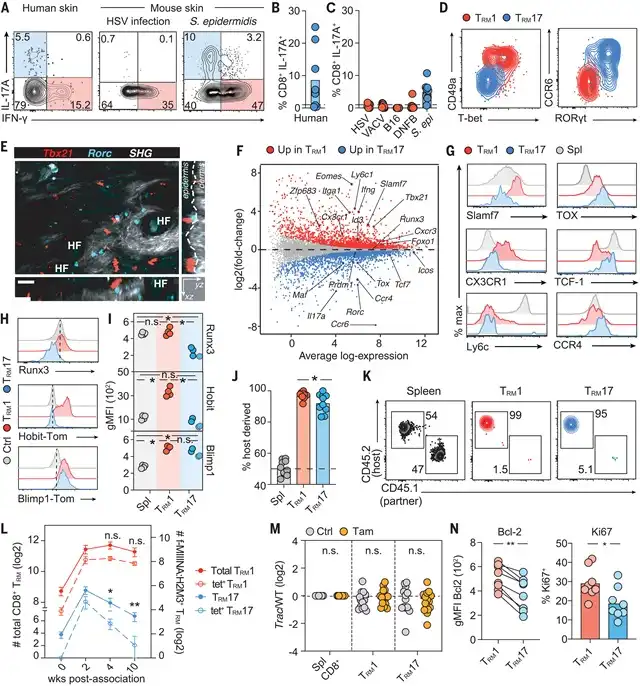Hope for Patients with Autoimmune Skin Diseases through Immunotherapy
- Normal Liver Cells Found to Promote Cancer Metastasis to the Liver
- Nearly 80% Complete Remission: Breakthrough in ADC Anti-Tumor Treatment
- Vaccination Against Common Diseases May Prevent Dementia!
- New Alzheimer’s Disease (AD) Diagnosis and Staging Criteria
- Breakthrough in Alzheimer’s Disease: New Nasal Spray Halts Cognitive Decline by Targeting Toxic Protein
- Can the Tap Water at the Paris Olympics be Drunk Directly?
Hope for Patients with Autoimmune Skin Diseases through Immunotherapy
- Should China be held legally responsible for the US’s $18 trillion COVID losses?
- CT Radiation Exposure Linked to Blood Cancer in Children and Adolescents
- FDA has mandated a top-level black box warning for all marketed CAR-T therapies
- Can people with high blood pressure eat peanuts?
- What is the difference between dopamine and dobutamine?
- How long can the patient live after heart stent surgery?
Hope for Patients with Autoimmune Skin Diseases through Immunotherapy
Researchers have identified a method that selectively eliminates “bad” immune cells responsible for autoimmune skin diseases while preserving “good” cells.
This discovery could lead to more durable and targeted treatments for conditions like psoriasis and vitiligo.

Our skin contains specialized immune cells that protect us from infections, cancer, and aid in wound healing. These long-lived tissue-resident memory (TRM) T cells stay in skin tissues, unlike other immune cells circulating in the blood. However, if not properly regulated, TRM cells can contribute to autoimmune skin diseases such as psoriasis and vitiligo.
A study led by researchers from the University of Melbourne and the Doherty Institute of Infection and Immunity has uncovered unique elements controlling various types of skin TRM cells in animal models. This provides a method to selectively eliminate problematic cells.
“Our skin’s specialized immune cells are diverse; many cells are crucial for preventing infections and cancer, but some play a key role in mediating autoimmunity,” said Simone Park, the first author and co-corresponding author of the study. “We identified critical differences in how different skin T cells are regulated, allowing us to precisely edit the immune landscape of the skin.”
There are two important TRM cell subgroups in human skin: CD8+ cells producing interferon-γ (TRM1) and CD8+ cells secreting interleukin-17 (TRM17), with the former having antiviral and anticancer effects. While both cell types can contribute to skin lesions, researchers found that TRM1 and TRM17 cells follow distinct signaling pathways in mice, settling in skin tissues differently. Moreover, they discovered that TRM17 cells could be selectively eliminated by targeting elements in their signaling pathway without harming corresponding TRM1 cells.
Susan Christo, one of the study’s co-authors, stated, “Most autoimmune therapies address symptoms rather than the root cause. Traditional treatments for skin diseases often indiscriminately affect all immune cells, potentially eliminating our protective T cells. Until now, we didn’t know how to differentiate between ‘bad’ and ‘good’ T cells in the skin. Through this research, we identified new molecules that allow us to selectively clear pathogenic T cells from the skin.”
The researchers believe their findings could lead to more precise and enduring therapies for skin diseases.
Co-corresponding author Laura Mackay remarked, “Skin diseases like psoriasis and vitiligo are challenging to treat long-term. The T cells driving the diseases are difficult to eliminate, often requiring lifelong treatment. Our approach could fundamentally change how we treat these skin conditions, significantly improving outcomes for patients with challenging skin diseases.”
Further human studies are needed to validate the efficacy of these strategies. Park noted, “These findings bring us closer to developing new drugs that can both durably prevent autoimmune skin diseases and preserve immune protective functions.” The research has been published in the journal “Science.”
Hope for Patients with Autoimmune Skin Diseases through Immunotherapy
(source:internet, reference only)
Disclaimer of medicaltrend.org
Important Note: The information provided is for informational purposes only and should not be considered as medical advice.



